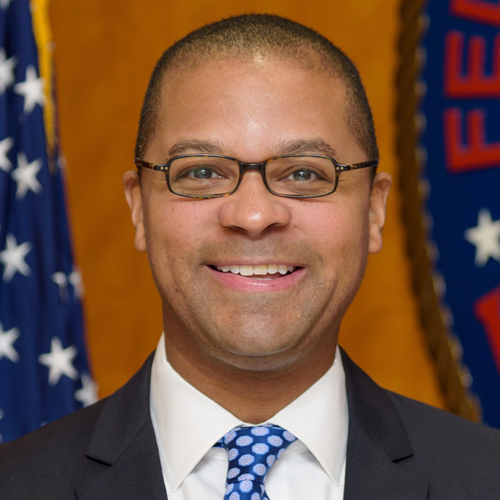
Like every FCC commissioner, Starks is committed to closing the digital divide. But he earned our respect—and our first-ever Public Interest D&I Champion honor—for his relentless drive to ensure that the process is inclusive. The “Your Home, Your Internet” pilot program, aimed at finding ways to get more folks in housing assistance signed up for free or low-cost internet, has been a signature Starks effort. “There is a particular nexus between housing and connectivity. If we can help a family secure housing, we should be able to help them secure an internet connection as well,” says Starks.
While Starks is thrilled with the commitment to broadband deployment through recent legislation such as the Infrastructure Law, he knows deployment alone won’t be the silver bullet. “I have heard from too many people that one of the biggest barriers to getting online is the cost. Broadband is often the first to go when household budgets tighten, and millions of Americans struggle to afford getting signed up in the first place. Broadband simply has not been affordable enough,” he says. His hope is that Your Home, Your Internet and similar initiatives will connect the nearly 48 million households that are eligible for the FCC’s Affordable Connectivity Program but not yet utilizing it.
Starks has applied his DEI lens internally at the Commission as well, helping in 2020 to launch the Early Career Diversity Initiative to advance equitable opportunities for underrepresented undergraduate, graduate, and law school students. Before its 2021 launch, the only internships available at the FCC for years were unpaid and voluntary. Now, a select number of paid internships are offered, with the agency investing resources to recruit students from HBCUs, Tribal colleges, institutions serving Hispanics and other minorities. The program also includes increased recruitment efforts with groups such as the National Black Law Students Association and the Society of Hispanic Professional Engineers.
“I have seen how getting the right internship can be the first domino in a tremendous career,” says Starks, who adds his office has attracted excellent interns, including from outside D.C. “Achieving diversity in the telecom policy workforce will take much more than just this initiative. It is just a start. I’m equally thrilled to see the incredible progress the FCBA has made with its Diversity Pipeline Program. We need more programs like it.”
Starks also wants to see the FCC think about DEI not just in terms of media ownership, but also in employment. “This is why I support our current proceeding to reinstate the collection of broadcast workforce data—which is something the Communications Act requires us to do,” he says. “We can’t solve a problem Congress asked us to solve without collecting the data Congress required us to collect to solve it.”